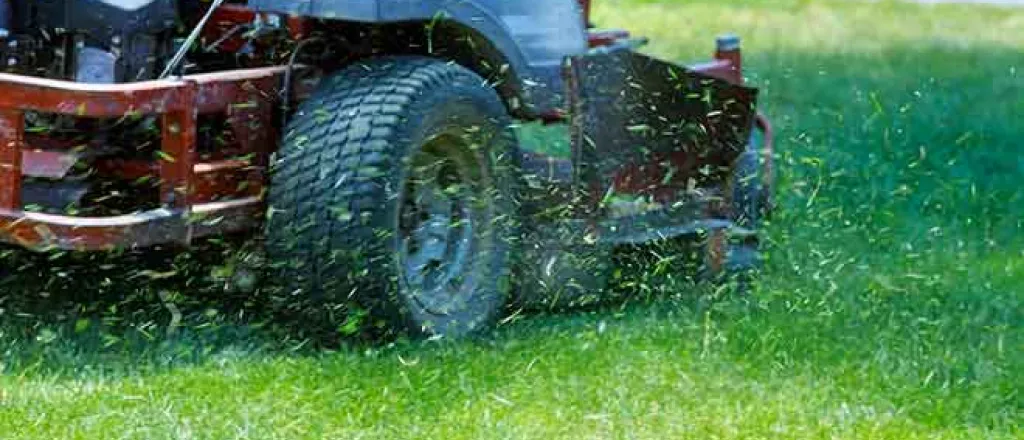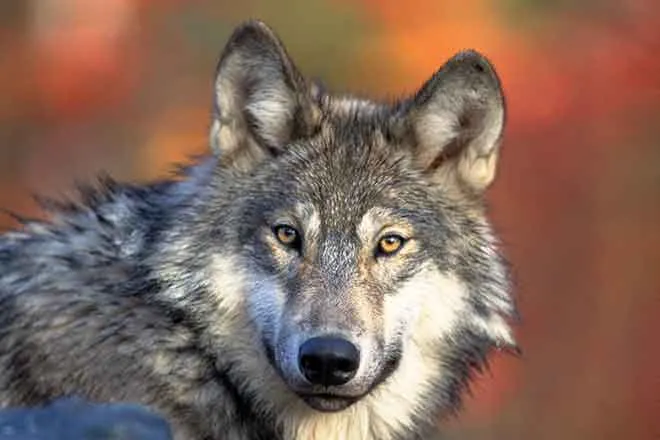
Have you ever taken some offbeat advice to help your lawn or trees that turned out to be a disaster? Well, you're not alone. On this edition of Agriculture USA Gary Crawford has some crazy stories for us from the lawn and garden Twilight Zone.
PARTICIPANTS: Gary Crawford. Dennis Patton and Ward Upham, Kansas State University Extension lawn and garden experts. Former Virginia Extension agent, Deborah Smith.
Transcript
Ah, for those of us who love doing lawn and garden work, this is one of our favorite times of the year.
I think the loveliest time of the year is the spring, don't you?
I do.
I do, yes.
And it's a good time for the nation's extension lawn and garden experts, too.
But it's also that time of year when they start to come out of the woodwork.
And we're not talking about termites, right?
I hope you're curious now and that you do like a little oddness in your life and maybe a few laughs, because that is what we hope you're going to get.
On this edition of Agriculture USA, I'm Gary Crawford.
When you are an expert whose job it is to handle questions from the public to try to figure out their problems and fix them, well, you may sometimes run into some questions or problems or suggestions that seem just a bit crazy.
Crazy.
And a lot of times they get these crazy recommendations from their neighbors.
That does not mean that the people themselves are crazy, just that it might seem that way.
This from Kansas State University extension lawn and garden expert Dennis Patton.
He says sometimes problems are caused by taking the neighbor's yard and garden advice.
The average person gets their lawn and garden advice.
It's from their neighbor.
And I jokingly tell people, you know, I've talked to your neighbor before and trust me, you don't want to get your advice from them.
Because I know the crazy things they've asked.
For example?
We get the home remedy from time to time.
Got milk?
You know, milk seems to be a salvation for everything for some reason.
Spraying it on, I've heard that one.
Oh yes, milk as weed killer, fertilizer, insect controller, should make the dairy producers very happy, except Patton says there's no truth in it.
Of course, there are folks who don't use milk to kill weeds.
Here's a story about a guy who is much too sophisticated for that.
However...
The wife called our office and the husband went out to do weed control.
Husband didn't read the label.
Husband sprayed the non-selective herbicide all over the lawn and just killed out.
From her description, about three-fourths of it.
You can just see the trails where he took the little wand and just had this trail throughout the lawn where he killed it all out with not reading the label.
Didn't understand some herbicides work differently.
Let me just say she was not happy with her husband.
Well, to keep this even as far as gender goes though, this next one is a hot one and we do mean hot.
We have an insect called fall webworm, which these webs get all over the end of the branches of the tree.
So this call, I had a call from a woman, her tree wasn't leafing out this year.
And we went through everything under the face of the earth trying to figure out why this tree wasn't leafing out.
And then finally she goes, well, you know, last fall I had these fall webworms, so I took a torch and burned them out of the tree.
Do you think that would have killed the tree?
Bingo.
Tree go too, unfortunately.
You remember what Smokey Bear used to say?
Only you can prevent forest fires.
But Dennis Patton's version is...
Trees and fire just don't go together.
Ah, but wait, there's more.
Here's one from a 1980 interview I did with Deborah Smith, at that time an extension agent in Virginia.
One day this guy comes into her office frantic.
Oh, and he says, please, please, Deborah, our hybrid poplar trees, they're dying, they're losing their leaves, you gotta save them.
So he goes, Deborah sends off the sample he brought in to the university for a diagnosis.
Next day his wife came in with another branch sample and she was very agitated as well.
I've got to know the answer by the weekend.
I'll tell you the reason why.
We planted these hybrid poplars as a living fence around our property.
Very thick fence and screen from our neighbors.
She said, we're having a hot tub party this weekend and we're nudists.
We need those trees as a screen.
The leaves keep falling off like this and the neighbors will start to complain.
Or maybe they won't.
But anyway, they fixed it and everybody was happy.
So next we've got a brand new story from Kansas State University horticultural expert, Warren Upham.
He says there used to be a guy around his town who did some horticultural work.
Every once in a while he'll do some tree planting for people.
And this guy hired him and he took him down to a neighbor that was down the street and said, I want a tree exactly like that.
He said, okay.
And so a week later he had a tree that looked exactly like his neighbors.
He drove past his neighbors, his tree was missing.
Oh wow.
He dug it up at one place and moved it to another.
Yep.
Is this guy still running around free?
No, that was years and years ago.
Well let's hope so anyway.
That's all the time we have for today.
Thank goodness.
You have been half listening, at least, to Agriculture USA.
I'm Gary Crawford reporting for the U.S. Department of Agriculture.
(upbeat music)








